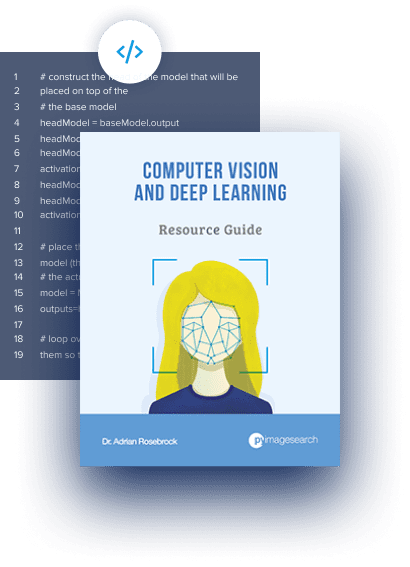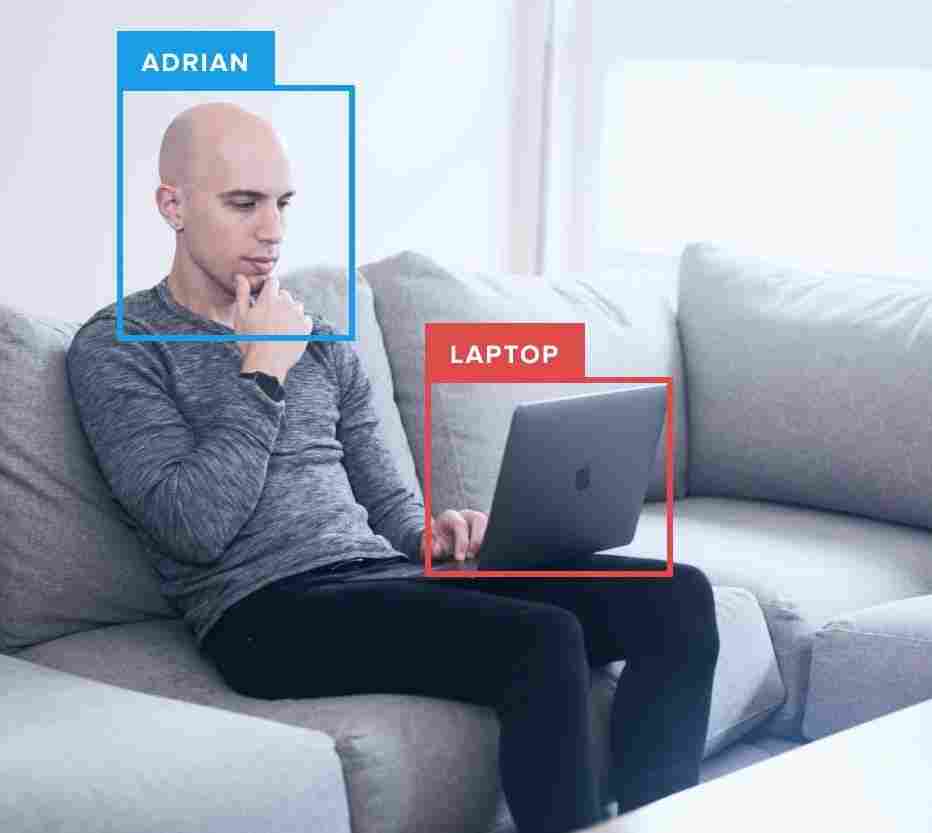In today’s blog post, I interview Saideep Talari, a PyImageSearch Gurus graduate who was recently hired as a computer vision engineer at a startup in India.
Saideep’s story holds a special place in my heart as it’s so incredibly sincere, genuine, and heartfelt.
You see, Saideep comes from a very low income Indian family. They did not have much money. In fact, online education (such as the PyImageSearch Gurus course, Udacity, etc.) was considered a “luxury”.
But that didn’t stop Saideep — he took it upon himself to study computer vision, not only because he felt it to be his passion and calling, but because he wanted to help his family.
In fact, Saideep felt so strongly about studying computer vision that he took out an educational loan from his personal bank to help supplement the cost of the PyImageSearch Gurus course.
Saideep joined PyImageSearch Gurus in August 2016 and then graduated in February 2017. I was consistently impressed with his dedication, work ethic, and commitment to mastering computer vision.
Back in April I received an email from Saideep expressing his happiness — he recently acquired a job at a computer vision startup in India working with drone-based AI solutions.
During the interview process, the company gave Saideep a computer vision assignment to complete. His solution was so impressive that they immediately hired him and brought him on board as a computer vision engineer.
Today, Saideep:
- Holds a very well paying job.
- Can take care of his family and support them.
- Has cleared all of his/his families’ debts.
- Is currently doing what he loves — working with computer vision.
Even more impressive, he has transformed from computer vision student to computer vision engineer in just barely over six months.
This is truthfully one of the most heartwarming computer vision success stories I have heard and I am so incredibly proud of Saideep and his accomplishments.
Join me in this interview and discover how Saideep transformed his life (and the life of his family) by studying computer vision.
PyImageSearch Gurus member spotlight: Saideep Talari
Note: English is not Saideep’s first language, so he kindly asked me to edit his grammar and spelling to help make the responses more readable. I have done very little editing (as his English is quite understandable) and preserved as much as his original wording as possible. Thank you again for doing this interview Saideep!
Adrian: Hi Saideep! Thank you for agreeing to do this interview. It’s been my pleasure to get to know you through the PyImageSearch.com blog and the PyImageSearch Gurus course.
Saideep: Hello Adrian! It’s my pleasure to get interviewed by a great computer vision researcher like you!
Adrian: Can you tell us how you first became interested in computer vision?
Saideep: It’s a very long story, but to keep it simple, I first started learning security analysis which involves penetration testing for networks and web applications, but later I found my interest through data analysis and machine learning.
The project that drove me to computer vision is when I’m tried to create a bot for cracking CAPTCHA images. Breaking CAPTCHAs involves lots of image processing and machine learning under the hood, so that’s how I started my journey to computer vision from my interest through security analysis.
I tried browsing the web for resources to get myself trained in computer vision, but the resources are few and I found that many are not very explanatory. Fortunately, I found your [PyImageSearch] blog on Google search, and have read the content you posted.
Your blog really drove me and boosted my interest towards learning computer vision since now I have a platform to search for computer vision problems.
Adrian: You mentioned over email that you were recently hired as a computer vision engineer for a startup in India. Can you tell us about this job and what the interview process was like?
Saideep: Yeah! First, thanks a lot! If I have not taken the PyImageSearch Gurus course I would have not got this job. And yes, it’s an early stage startup based in India, we deal with aerial intelligence through drones. It helps agriculture, mining, solar plants, etc., to solve their problems using drones by powering them with artificial intelligence and computer vision.
I applied for the role of Computer Vision Engineer like others. I was given a task which deals with crop row detection and patch identification.

It took me 15 minutes to understand the actual problem. My initial plan was to apply machine learning, but I found that it can be done with image processing techniques. I tried my approach and I got the promising results. Not every image in the dataset is under the same lighting conditions, but I remember your PyImageSearch Gurus lecture on dealing with varying lighting conditions and different color channels.
I inverted the problem. Instead of detecting the empty rows, I instead detected the actual rows that contains trees and other things, and after some morphological operations finally I got the most promising solution.
One thing I understood from your words in the course is:
Sometimes a clever use of image processing techniques can save you a lot of time and avoid more advanced (and tedious) algorithms. — Adrian Rosebrock, PyImageSearch Gurus
Later I was interviewed for image segmentation using deep learning, RCNNs and other optimization methods. I did well.
Adrian: When you first emailed me about joining the PyImageSearch Gurus course, I know one of your primary concerns was price. Do you think the course was worth the cost?
Saideep: Yes! Initially I felt the price was very high. But after my first week in the course, I believe that even $95 is very cheap as the content you delivered is invaluable. You not only wrote lessons, but you wrote your experiences which can not be balanced by any sum of currency.
To be frank, the course is worth more than what you charge. I felt this because no person can find an end-to-end exhaustive course from scratch like this on earth.
Adrian: Would you recommend the PyImageSearch Gurus course to other students and developers who are trying to learn computer vision (and obtain a job)?
Saideep: Sure, definitely. I’ve recommended PyImageSearch Gurus to some of my friends. It’s very good to start with the course as it covers a wide range of real life problems. Also students do not have to worry about “practicing” because you structured [the course] in a way which pushes the person to get as much hands-on experience as possible. Not only that, the course include access to awesome community [forum] threads where we can find people who can help with our problems regarding computer vision.
PyImageSearch Gurus is definitely a big “yes” for obtaining a job in computer vision if one is very much passionate, as this field is very complex. You [and the PyImageSearch Gurus course] have broken down complex things to be simple which are very clear to understand.
Adrian: Is there anything else you would like to share?
Saideep: I’m eagerly waiting your Deep Learning for Computer Vision with Python book release. I’m planning to buy the ImageNet Bundle. You really put all your experiences in creating awesome content.
Adrian: If a PyImageSearch reader wants to chat, where is the best place to connect with you?
Saideep: Please connect with me on LinkedIn or GitHub.
What's next? I recommend PyImageSearch University.
30+ total classes • 39h 44m video • Last updated: 12/2021
★★★★★ 4.84 (128 Ratings) • 3,000+ Students Enrolled
I strongly believe that if you had the right teacher you could master computer vision and deep learning.
Do you think learning computer vision and deep learning has to be time-consuming, overwhelming, and complicated? Or has to involve complex mathematics and equations? Or requires a degree in computer science?
That’s not the case.
All you need to master computer vision and deep learning is for someone to explain things to you in simple, intuitive terms. And that’s exactly what I do. My mission is to change education and how complex Artificial Intelligence topics are taught.
If you're serious about learning computer vision, your next stop should be PyImageSearch University, the most comprehensive computer vision, deep learning, and OpenCV course online today. Here you’ll learn how to successfully and confidently apply computer vision to your work, research, and projects. Join me in computer vision mastery.
Inside PyImageSearch University you'll find:
- ✓ 30+ courses on essential computer vision, deep learning, and OpenCV topics
- ✓ 30+ Certificates of Completion
- ✓ 39h 44m on-demand video
- ✓ Brand new courses released every month, ensuring you can keep up with state-of-the-art techniques
- ✓ Pre-configured Jupyter Notebooks in Google Colab
- ✓ Run all code examples in your web browser — works on Windows, macOS, and Linux (no dev environment configuration required!)
- ✓ Access to centralized code repos for all 500+ tutorials on PyImageSearch
- ✓ Easy one-click downloads for code, datasets, pre-trained models, etc.
- ✓ Access on mobile, laptop, desktop, etc.
Summary
In today’s post blog, I interviewed Saideep Talari, a PyImageSearch Gurus course graduate who recently obtained a job working as a computer vision engineer at a startup in India.
Through this job Saideep is now able to provide for his family and take care of them.
This is truthfully one of the most amazing, heartfelt computer vision success stories I have heard and I am very proud of Saideep and his accomplishments. Please join me and congratulate him in the comments section of this blog post.
And if you would like to learn more about the PyImageSearch Gurus course (and follow in Saideep’s footsteps), just click here.

Join the PyImageSearch Newsletter and Grab My FREE 17-page Resource Guide PDF
Enter your email address below to join the PyImageSearch Newsletter and download my FREE 17-page Resource Guide PDF on Computer Vision, OpenCV, and Deep Learning.


